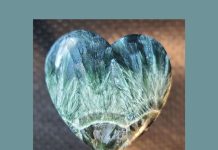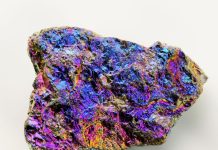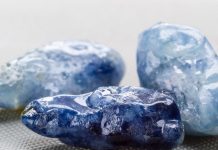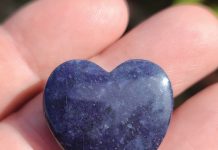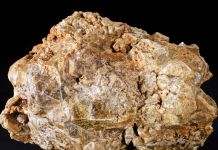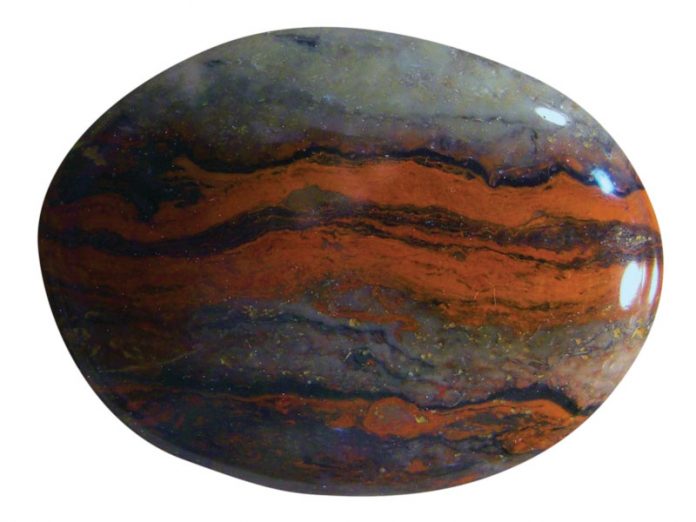
Myrickite is a local variety of agatized or opalized chalcedony. The agatized variety has a Mohs-scale hardness of seven. The opalized form has a Mohs-scale hardness of five. Both sport red and orange colors that mimic the color of dangerous animals, and for those in the know, mean stay away.
Myrickite – What’s in a Name?
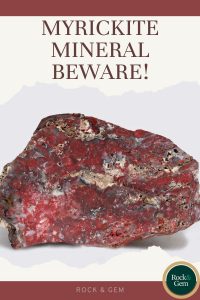
Myrickite is not an official mineral name but a lapidary term like “Montana agate” or “picture stone.” It is named for prospector Francis Myrick (1850-1925), who uncovered specimens in 1911. The first official description is of specimens found near Myrick Spring in San Bernardino County, California.
Fincing Myrickite
The best-known source of myrickite is the now-defunct Manhattan Mine in Napa County, California. It is said that myrickite deposits are only found overlying gold deposits and gold is what folks were looking for in establishing the Manhattan Mine. While some gold was found, the mine primarily produced mercury—and myrickite. The quantity of myrickite was small, less than one ton was eventually mined in the early 1950s. Still, this represents the largest deposit found to date, and many specimens on the lapidary market today came from that singular deposit.
Toxic Mercury
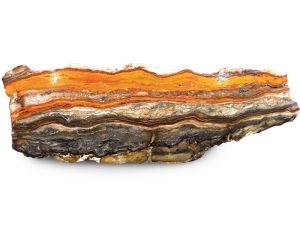
Normally, metallic, tin-white mercury often goes by the name cinnabar and is bright red when found as an inclusion in agate. Another variety is vivid orange. This is myrickite, which may occur in agate or opalite. Agatized material tends to be orange-red, whereas opalized varieties are orange against a black background. Both are so vivid they almost seem synthetic.
Mercury is a toxic mineral. The website Mindat.org recommends the following in dealing with rocks or minerals containing mercury. “Always wash hands after handling. Avoid inhaling dust of associated rock or matrix…and store under cover.”
Mercury bound in agate is not necessarily feared, especially given that the percentage of mercury in myrickite is less than 0.01 percent.
Many sources (including mindat.org) do not indicate a health hazard associated with myrickite, still, it contains mercury.
One wise mineral expert has told me, “always treat any mineral specimen with care.” That is advice well worth heading, especially with a mineral to beware of. Like a bright orange bee, myrickite clearly advertises its contents!
This story about the mineral myrickite appeared in Rock & Gem magazine. Click here to subscribe. Story by Jim Brace-Thompson.


